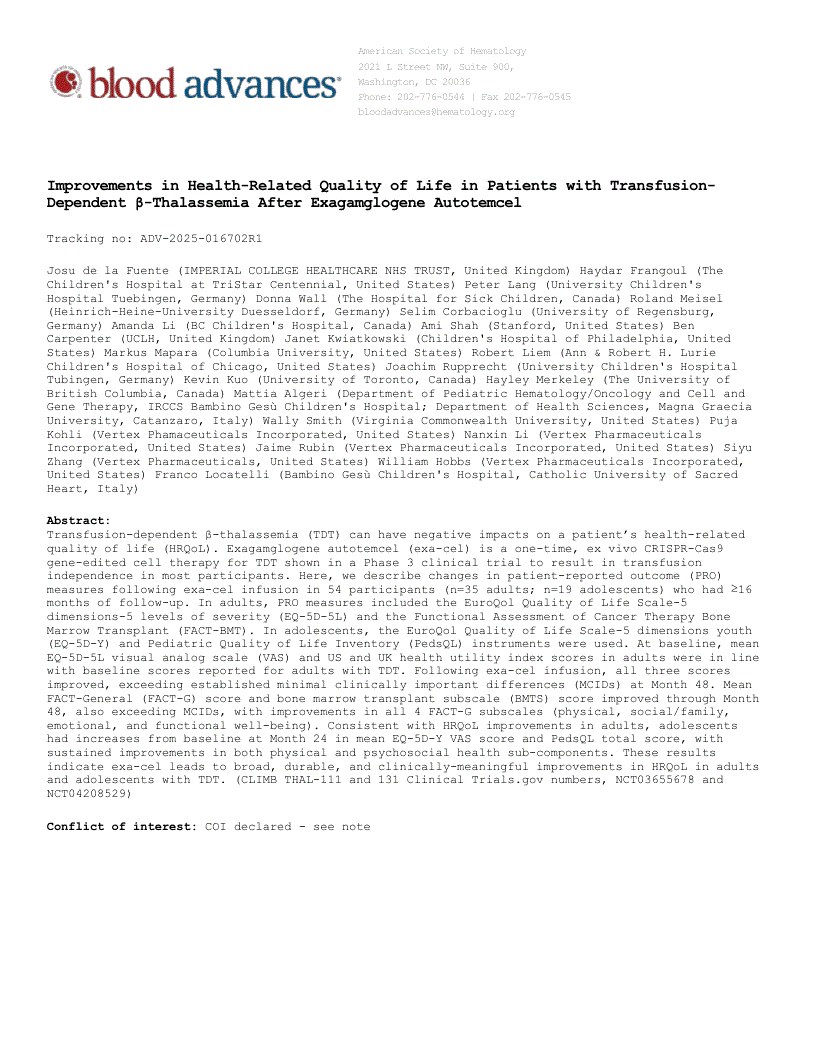Key Points
Exagamglogene autotemcel (exa-cel) improved overall health-related quality of life in patients with transfusion-dependent β-thalassemia(TDT)
Clinically-meaningful improvements in HRQoL were seen in both adults and adolescents and across a wide range of health domains
Transfusion-dependent β-thalassemia (TDT) can have negative impacts on a patient's health-related quality of life (HRQoL). Exagamglogene autotemcel (exa-cel) is a one-time, ex vivo CRISPR-Cas9 gene-edited cell therapy for TDT shown in a Phase 3 clinical trial to result in transfusion independence in most participants. Here, we describe changes in patient-reported outcome (PRO) measures following exa-cel infusion in 54 participants (n=35 adults; n=19 adolescents) who had ≥16 months of follow-up. In adults, PRO measures included the EuroQol Quality of Life Scale-5 dimensions-5 levels of severity (EQ-5D-5L) and the Functional Assessment of Cancer Therapy Bone Marrow Transplant (FACT-BMT). In adolescents, the EuroQol Quality of Life Scale-5 dimensions youth (EQ-5D-Y) and Pediatric Quality of Life Inventory (PedsQL) instruments were used. At baseline, mean EQ-5D-5L visual analog scale (VAS) and US and UK health utility index scores in adults were in line with baseline scores reported for adults with TDT. Following exa-cel infusion, all three scores improved, exceeding established minimal clinically important differences (MCIDs) at Month 48. Mean FACT-General (FACT-G) score and bone marrow transplant subscale (BMTS) score improved through Month 48, also exceeding MCIDs, with improvements in all 4 FACT-G subscales (physical, social/family, emotional, and functional well-being). Consistent with HRQoL improvements in adults, adolescents had increases from baseline at Month 24 in mean EQ-5D-Y VAS score and PedsQL total score, with sustained improvements in both physical and psychosocial health sub-components. These results indicate exa-cel leads to broad, durable, and clinically-meaningful improvements in HRQoL in adults and adolescents with TDT. (CLIMB THAL-111 and 131 Clinical Trials.gov numbers, NCT03655678 and NCT04208529)

